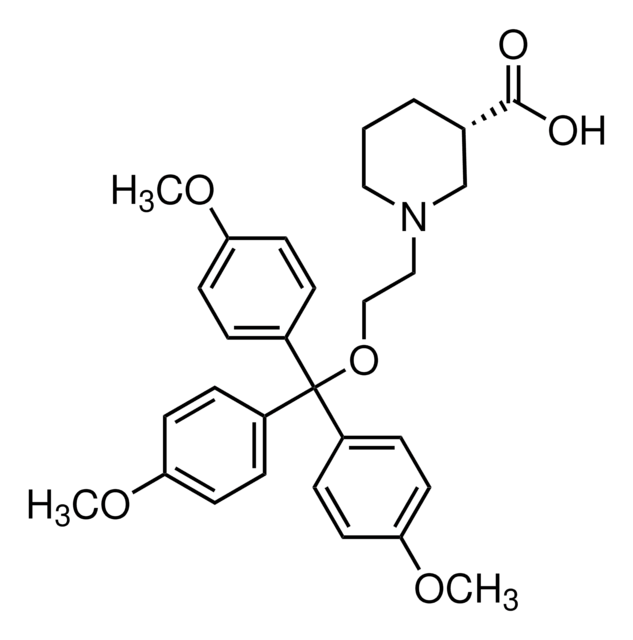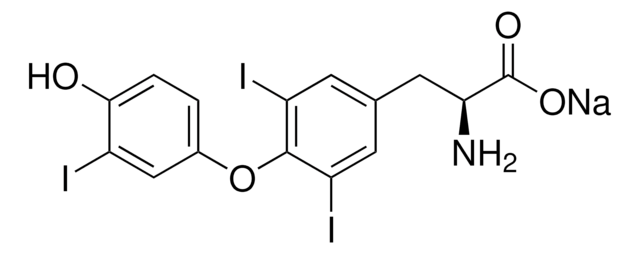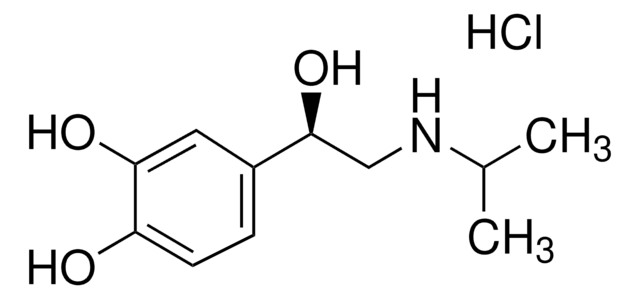M3668
Metergoline
Synonym(s):
N-CBZ-[(8β)-1,6-Dimethylergolin-8-yl]methylamine, [(8β)-1,6-Dimethylergolin-8-yl)methyl]carbamic acid phenylmethyl ester
About This Item
Recommended Products
mp
148-150 °C (lit.)
solubility
0.1 M HCl: 1.4 mg/mL
ethanol: 4 mg/mL
H2O: insoluble
storage temp.
−20°C
SMILES string
[H][C@]2(CNC(=O)OCc1ccccc1)CN(C)[C@]3([H])Cc4cn(C)c5cccc(c45)[C@@]3([H])C2
InChI
1S/C25H29N3O2/c1-27-14-18(13-26-25(29)30-16-17-7-4-3-5-8-17)11-21-20-9-6-10-22-24(20)19(12-23(21)27)15-28(22)2/h3-10,15,18,21,23H,11-14,16H2,1-2H3,(H,26,29)/t18-,21+,23+/m0/s1
InChI key
WZHJKEUHNJHDLS-QTGUNEKASA-N
Gene Information
human ... HTR1A(3350) , HTR1B(3351) , HTR1D(3352) , HTR1E(3354) , HTR1F(3355) , HTR2A(3356) , HTR2B(3357) , HTR2C(3358) , HTR7(3363)
rat ... Htr7(65032)
Looking for similar products? Visit Product Comparison Guide
Related Categories
Application
- to study its effects on astrocyte calcium signals evoked by whisker stimulation
- to study its effects on lipopolysaccharide-induced anorexia in rats
- to evaluate the non-specific binding by 5-HT1A receptor binding assays
Biochem/physiol Actions
Signal Word
Warning
Hazard Statements
Precautionary Statements
Hazard Classifications
Acute Tox. 4 Dermal - Acute Tox. 4 Inhalation - Acute Tox. 4 Oral
Storage Class Code
11 - Combustible Solids
WGK
WGK 3
Personal Protective Equipment
Regulatory Listings
Regulatory Listings are mainly provided for chemical products. Only limited information can be provided here for non-chemical products. No entry means none of the components are listed. It is the user’s obligation to ensure the safe and legal use of the product.
JAN Code
M3668-500MG:
M3668-BULK:
M3668-5G:
M3668-VAR:
Choose from one of the most recent versions:
Already Own This Product?
Find documentation for the products that you have recently purchased in the Document Library.
Our team of scientists has experience in all areas of research including Life Science, Material Science, Chemical Synthesis, Chromatography, Analytical and many others.
Contact Technical Service









